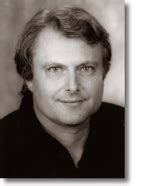A Quote by Veronica Chambers
We are more than we imagine ourselves to be. It's what we tell our children, our parents, our friends. But how often do we tell it to ourselves? And if we do, how often do we prove it? How often do we challenge ourselves to do something new?
Related Quotes
How often do we tell our own life story? How often do we adjust, embellish, make sly cuts? And the longer life goes on, the fewer are those around to challenge our account, to remind us that our life is not our life, merely the story we have told about our life. Told to others, but — mainly — to ourselves.
How do we define, how do we describe, how do we explain and/or understand ourselves? What sort of creatures do we take ourselves to be? What are we? Who are we? Why are we? How do we come to be what or who we are or take ourselves to be? How do we give an account of ourselves? How do we account for ourselves, our actions, interactions, transactions (praxis), our biologic processes? Our specific human existence?
As an introvert, you can be your own best friend or your worst enemy. The good news is we generally like our own company, a quality that extroverts often envy. We find comfort in solitude and know how to soothe ourselves. Even our willingness to look at ourselves critically is often helpful.But, we can go too far. We can hoard responsibility and overlook the role others play. We can kick ourselves when we're down. How many times have you felt lousy about something, only to get mad at yourself for feeling lousy?
If we don't love ourselves, we would not love others. When someone tell you to love others first, and to love others more than ourselves; it is impossible. If you can't love yourselves, you can't love anybody else. Therefore we must gather up our great power so that we know in what ways we are good, what special abilities we have, what wisdom, what kind of talent we have, and how big our love is. When we can recognize our virtues, we can learn how to love others.
Lack of self-confidence is, more often than not, simple laziness. We feel confused and uncertain because we do not know. But instead of making the effort to investigate, we procrastinate and worry. We tell ourselves we can't instead of learning how we can. If we used the mental energy we expend in worry and fear to get out and find out about what we do not know, we would see our self-confidence grow. Lack of self-confidence is not overcome by faith, but by action. It is a lack, not of certainty, but of effort. Too often we are certain that we can't before we give ourselves a fair chance.
In the chapter on study we considered the importance of observing ourselves to see how often our speech is a frantic attempt to explain and justify our actions. Having seen this in ourselves, let's experiment with doing deeds without any words of explanation whatever. We note our sense of fear that people will misunderstand why we have done what we have done. We seek to allow God to be our justifier.
We cannot too soon convince ourselves how easily we may be dispensed with in the world. What important personages we imagine ourselves to be! We think that we alone are the life of the circle in which we move; in our absence, we fancy that life, existence, breath will come to a general pause, and, alas, the gap which we leave is scarcely perceptible, so quickly is it filled again; nay, it is often the place, if not of something better, at least for something more agreeable.
Life hands us a lot of hard choices, and other people can help us more than we might realize. We often think we should make important decisions using just our own internal resources. What are the pros and cons? What does my gut tell me? But often we have friends and family who know us in ways we don't know ourselves.
There are studies that have shown that we make decisions, ethical and otherwise, based on the way we imagine ourselves as characters in the stories of our lives. In other words, if we imagine ourselves brave or crazy or open, we're more likely to make decisions in a given situation based on how we imagine ourselves, whatever the facts may be.

































